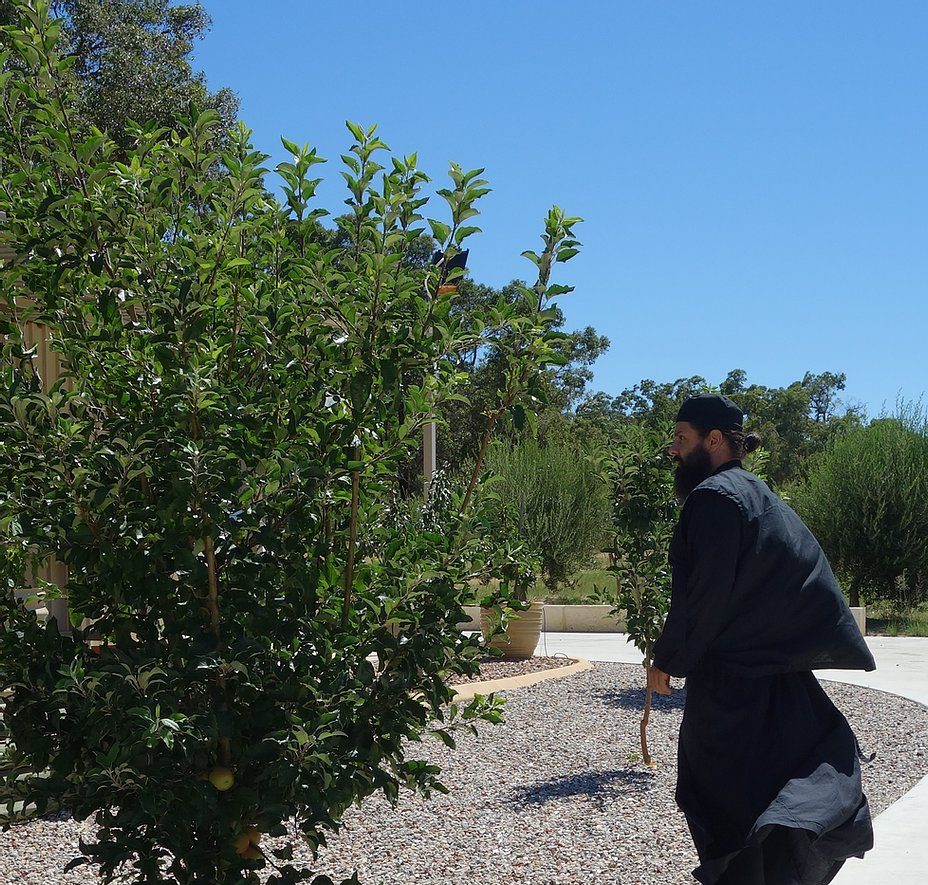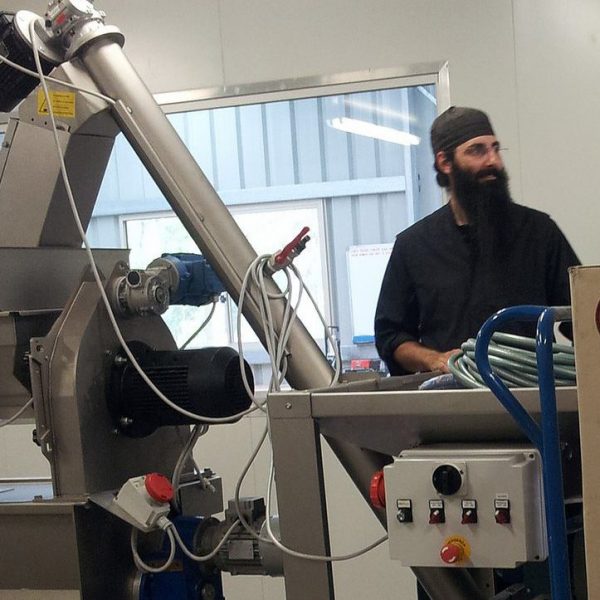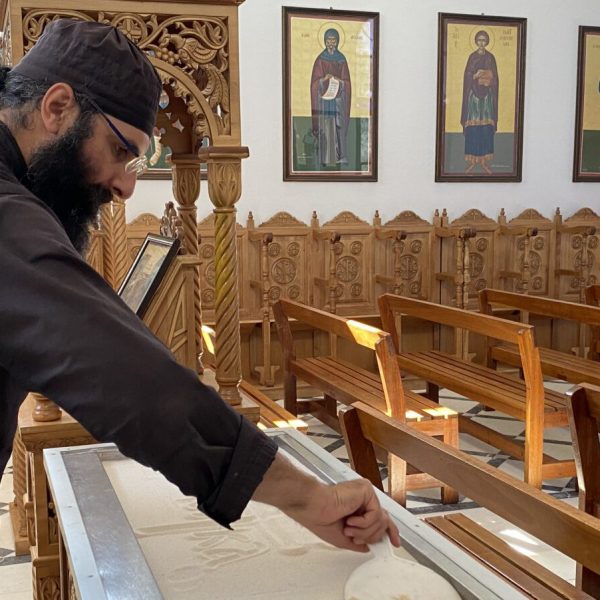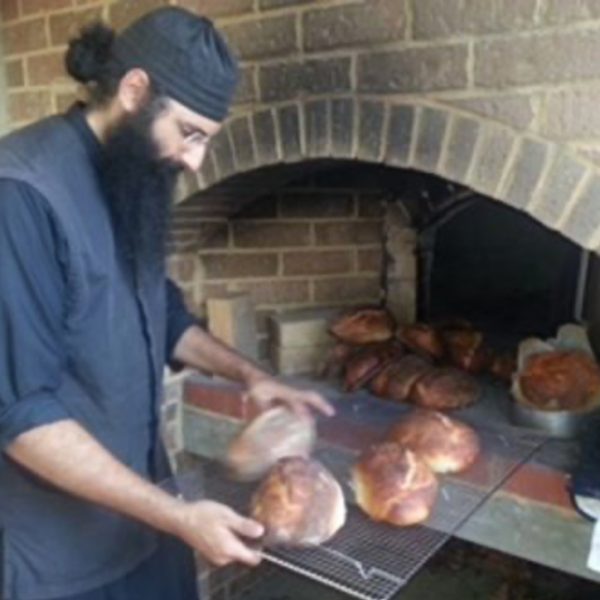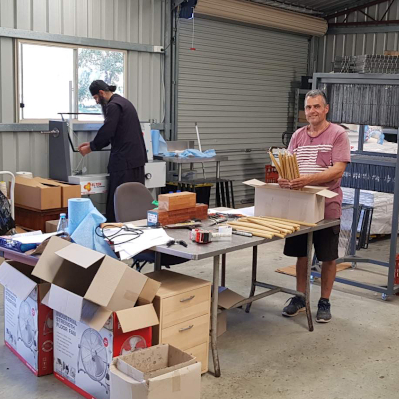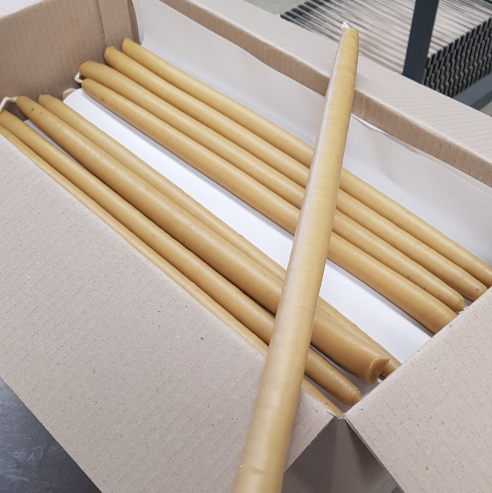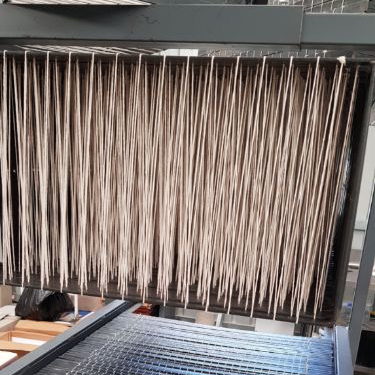Monastic Life
Monasticism
Monasticism (from the Greek word μοναχός – solitary) is the ancient Christian practice of withdrawal from the world in order to dedicate oneself fully and intensely to the life of the Gospel, seeking union with our Lord Jesus Christ. The focus of monasticism is the soul’s purification, illumination, and deification, or what is called theosis. It is the process of perfection in Christ, to which every Christian is called: “Be ye perfect as your heavenly Father is perfect” (Matt. 5:48).
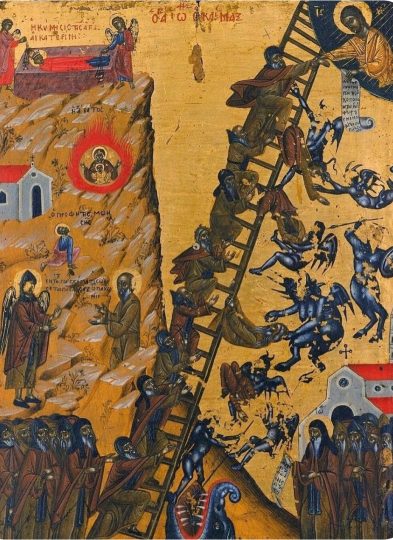
Within their Monastery enclosure, monastics live a life of spiritual stillness called hesychasm, working in silence and constant prayer throughout the day, keeping vigil at night, and carefully attending to their thoughts and feelings through inner watchfulness and prayer, while participating continually in the Sacraments and the liturgical life of the Church. At the centre of this life lived for Christ is the ceaseless repetition—vocally or silently—of the Jesus prayer: “Lord Jesus Christ, have mercy on me a sinner.” This prayer, practised within the framework of perfect obedience to the Monastery’s Abbot, brings the Grace of God into the disciples’ souls. With patience and perseverance, in time and by the great mercy of God, they attain to the acquisition of the Holy Spirit.
Ceaseless prayer of the heart is a commandment of our Lord Jesus Christ Himself: “And He spake a parable unto them to this end, that men ought always to pray, and not to faint” (Luke 18:1). This form of concentrated, unremitting, noetic prayer was first practised by the Holy Apostles and then handed down to each generation of Christians, monastics and laity alike, as Saint Paul exhorted: “Pray without ceasing” (1 Thess. 5:17). Dwelling in freedom from distractions and living outside the bustle of the modern world, the monastic offers this prayer to God for the salvation of the entire world.
Concerning the apostolic monastic life, Metropolitan Hierotheos of Nafpaktos writes: “Monasticism is the glory of the Church, and the monks, as Saint Gregory of Nyssa taught, are the crown of the body of the Church. The monastic life is the Christian life, the way of the Prophets, Apostles, and Martyrs. In reality, it is the evangelical life, as a life of repentance and keeping Christ’s commandments to as perfect a degree as possible.”
Christ taught this life in His Sermon on the Mount, in His exhortations to be vigilant and take heed, to have absolute faith in God, to avoid cares that cause anxiety, and so on. He often went up on the mountain to pray on His own, not because He needed to, but to teach us this way of life. He Himself urged us to pray in the inner chamber, and when we have shut the door, to pray to our Father Who is in secret (Matt. 6:6).
If one reads the Acts of the Apostles and the Epistles of the Apostles, they will find that the first Christians – imitating the apostolic community of Christ – lived by prayer, common life, inspiration, with all possessions held in common, and they expected the coming of the Kingdom of God, which they experienced as a spiritual reality.
(Excerpt from Saint Anthony Monastery of Arizona)
The Life of a Monk
For over 15 years now in Perth, we have a functioning Greek Orthodox Monastery, a Monastery dedicated to prayer and the love of God. The monks pray for the world and the salvation of their souls. Apart from their daily prayer program, the Monastery also services our Orthodox Community. Considering our close proximity to the ‘world’, the Monastery annually takes in many pilgrims, both locally and interstate, pilgrims looking for a deeper spiritual life or pained in the world. They come to give rest to their weary souls; the Monastery is to them a peaceful harbour, away from the turbulent and stormy sea of the world.
For our Monastery to exist it needs to be financially sustainable, which is obvious considering its ongoing expenses, every day running costs and maintenance. Our Monastery is still in its developmental stage for the construction of the buildings.
The monks’ daily program varies from one monk to another, but in general consists of common and personal prayer time and spiritual reading, followed by various tasks. These individual tasks are called the diakonima of each monk. Every monk has his assigned daily task, as part of his obedience.
These tasks include arts and crafts, book publishing, candle making, olive oil making and packaging, food preparation, offering hospitality, grounds keeping and maintenance, as well as tending to the olive groves, bee hives, chickens, and to the various gardens and orchards. To support themselves, the monks produce candles, honey, olive oil, sell and publish books, sell their agricultural products, and rely on donations from pilgrims and tourists visiting the Monastery.
Monks working for their ‘daily bread’ is not something new. Apostle Paul tells us, ‘if anyone will not work, neither should he eat’. (Thess:3.10).
Monks of the early Church, the desert Fathers of Egypt and Palestine, used to make their own handicrafts of rush-mats or cane-baskets, and then take them to market to sell to sustain their existence. Even in the 21st Century, this is a practice of Orthodox Monasteries around the world, selling their handicrafts or products to build their Monasteries and cover the costs of their daily living.
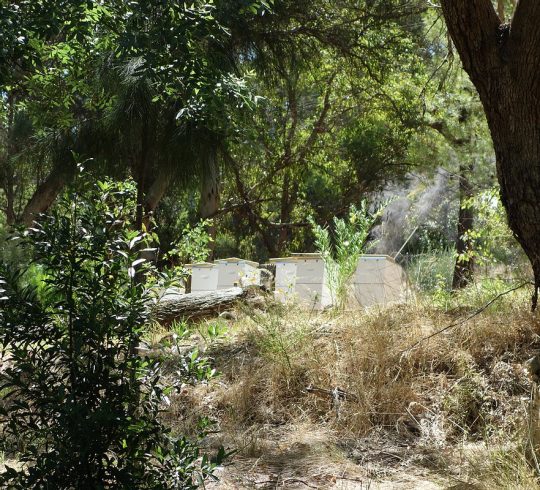
Olive Oil
In 2012, the Monastery purchased state-of-the-art olive oil procession equipment and established a processing plant for the olives of the Monastery. The olive oil produced is not intended to be commercially competitive with major leading brands, local or imported from Europe. Essentially the idea is to provide a virgin product made by the monks from their own labour in return for a donation. Thus, every bottle of olive oil purchased goes to supporting the Monastery.
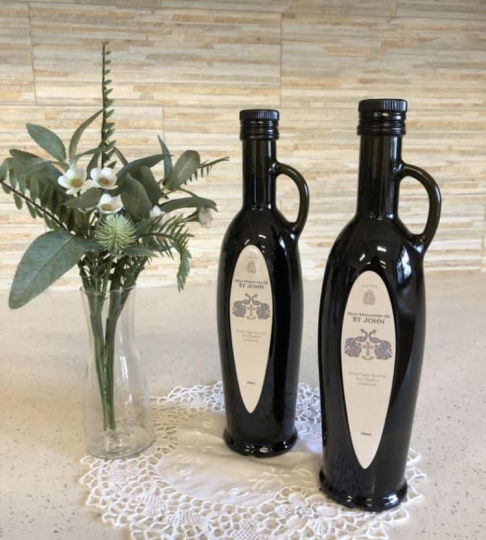
The Eastern Orthodox Church has for centuries used olive oil as part of its sacramental life. The word Oil in Greek “Έλαιον” systematically also means ‘Mercy’. We use olive oil in many distinct ways during our Orthodox Sacramental Worship: during the Euchelaion (Healing Service), Baptism, Artoklasia (Blessing of the loaves), Funerals, and also during the offering of the Prosforo (Holy Bread). During this offering, the faithful bring also bottles of olive oil, wine, incense and charcoals. This is because the person who brings the prosforo in essence also brings along and offers all the essential items needed for the Divine Liturgy; the bread and wine for the Holy Eucharist, olive oil for the votive lamps, and incense and charcoals to be used during the Divine Liturgy, symbolising our prayers raising to Heaven.
The Fathers of the Holy Monastery ask you to keep the above in mind when purchasing a bottle of our extra virgin olive oil, and know that proceeds from your donation benefit our future sustainability to keep Orthodox Monasticism and the life of prayer alive in Perth, Western Australia.
Candle Making
In 2019, with the help of various donors and the blessing of our Geronda, our Holy Monastery decided to purchase traditional candle making equipment from Greece, with the intent to make pure beeswax candles mostly for the Monastery’s liturgical life. Candles are made in various sizes of wicks and tapers as well as votive candles. These are used for the every day life of the church, including major feast days (e.g. Easter candles), as well as for the devotional life of the faithful, who can also purchase boutique candle packs for personal use.
In the process of establishing the candle production, we have had much interest from Orthodox parish churches both in Perth and interstates, who are turning away from paraffin candles and returning back to the original tradition of pure beeswax candles. Therefore, we are now offering to churches an opportunity to purchase from our Monastery our hand-made beeswax candles, endeavouring to keep the cost as low as possible since beeswax is more costly than paraffin wax. Our Monastery aims to offer our candles at very affordable prices.
For a limited time, we are offering FREE delivery to major capital cities to help in this initiative of our Monastery. However, the Monastery is not a business and will need sufficient lead time so we can fulfil all orders. For bulk orders, please contact Fr Prodromos, Abbot of the Monastery, at frprodromos@stjohnmonastery.com.au, and for personal orders please visit our E-Shop here.
